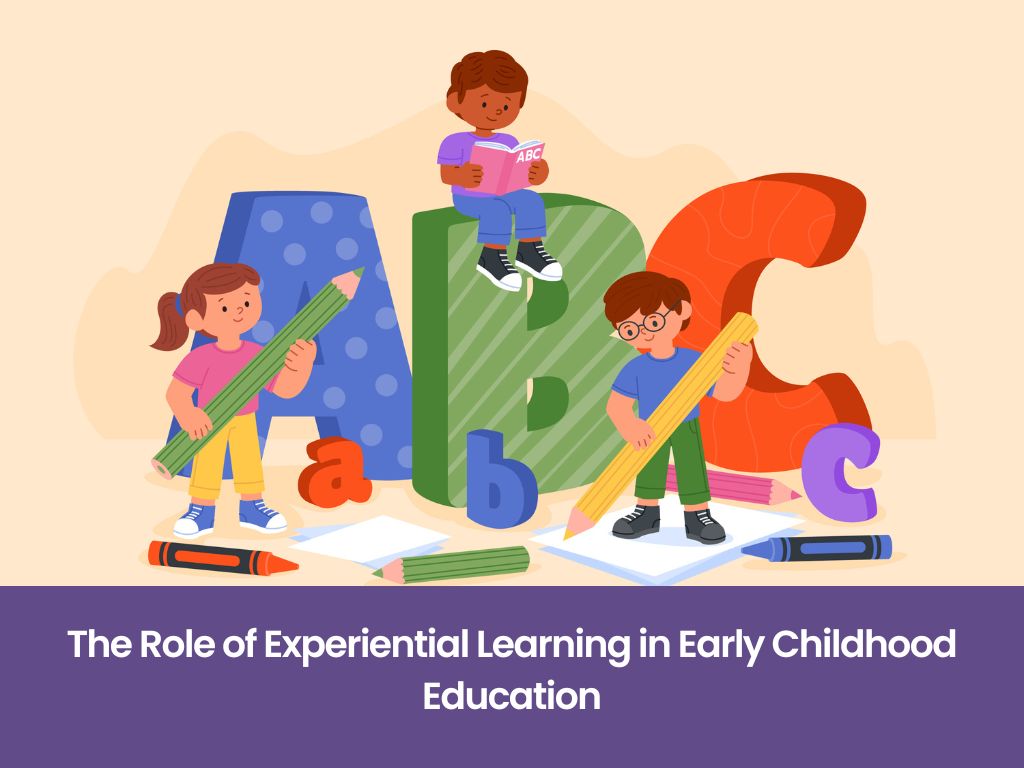The Role of Experiential Learning in Early Childhood Education
posted on Feb 06, 2025
Experiential learning plays a crucial role in shaping a child's cognitive abilities, emotional intelligence, and social skills. Unlike traditional memorization techniques, this method encourages children to explore, ask questions, and connect their learning with real-world experiences.

Introduction
Experiential learning plays a crucial role in shaping a child's cognitive abilities, emotional intelligence, and social skills. Unlike traditional memorization techniques, this method encourages children to explore, ask questions, and connect their learning with real-world experiences.
Enhances Cognitive Development
When children engage in hands-on activities, they develop stronger problem-solving and critical-thinking skills. For example, when conducting a simple science experiment, they understand cause and effect rather than just reading about it in a book.
Improves Retention and Understanding
Studies show that children remember concepts better when they experience them firsthand. A child learning about plants will grasp the concept more effectively by growing a plant, observing its growth, and caring for it rather than simply reading about photosynthesis.
Develops Social and Communication Skills
Experiential learning encourages group activities, discussions, and teamwork. Young learners engage in storytelling, role-playing, and collaborative projects that help them express their thoughts confidently and listen to others effectively.
Encourages Curiosity and Creativity
Children are naturally curious, and experiential learning nurtures their sense of exploration. Activities such as pretend play, building models, and creating artwork allow them to express their creativity and develop independent thinking.
Fosters Emotional Intelligence and Self-Confidence
When children are actively involved in their learning process, they develop a sense of achievement and confidence. Completing a task, solving a problem, or creating something new gives them a sense of accomplishment and boosts their self-esteem.
How BGS Vijnatham School Implements Experiential Learning
BGS Vijnatham School has designed its curriculum to include experiential learning at every stage of early childhood education. The school provides a dynamic learning environment where students can explore, interact, and engage with their surroundings in a meaningful way.
Interactive Classrooms
Learning at BGS Vijnatham School goes beyond textbooks. Smart classrooms, storytelling sessions, and interactive digital boards make lessons more engaging and immersive for young learners.
Play-Based and Activity-Based Learning
The school integrates play into education through role-playing, puppet shows, and hands-on activities. Children participate in real-world simulations that make learning enjoyable and memorable.
Outdoor Learning and Nature Exploration
Outdoor learning is an essential part of the curriculum. Nature walks, gardening activities, and environmental projects help students connect with their surroundings and develop observational skills.
STEM and Hands-On Science Experiments
Science, technology, engineering, and mathematics (STEM) education is introduced through hands-on experiments and interactive projects. Young learners engage in basic experiments that build curiosity and analytical thinking.
Art, Music, and Movement-Based Learning
Creative expression is a crucial aspect of experiential learning. The school incorporates music, dance, painting, and drama into its curriculum to enhance motor skills, emotional development, and imagination.
The Long-Term Benefits of Experiential Learning
Experiential learning has lasting effects on a child's academic journey and personal development. Students who engage in hands-on learning from an early age tend to:
- Develop stronger problem-solving and critical-thinking skills
- Have better memory retention and a deeper understanding of subjects
- Exhibit higher levels of creativity and independent thinking
- Possess excellent social and communication skills
- Show greater confidence and adaptability in new situations
Conclusion
Experiential learning is the foundation of early childhood education, ensuring that young learners develop essential life skills alongside academic knowledge. Schools that embrace this approach create a more engaging and effective learning environment, allowing students to explore and grow in meaningful ways. BGS Vijnatham School, a top school in Greater Noida West, is dedicated to fostering curiosity, creativity, and intellectual growth through experiential learning.
For parents looking for a school that emphasizes hands-on, interactive education, BGS Vijnatham School provides the perfect environment for young learners to thrive.